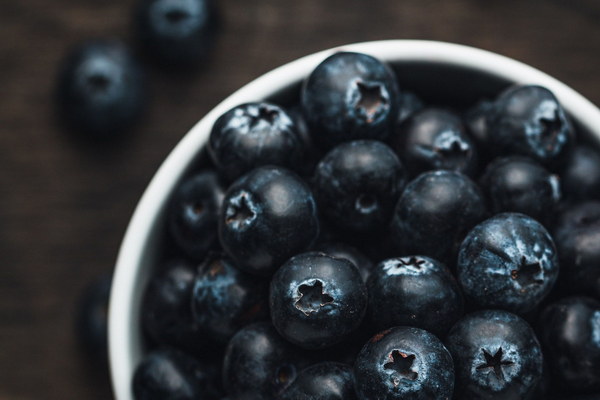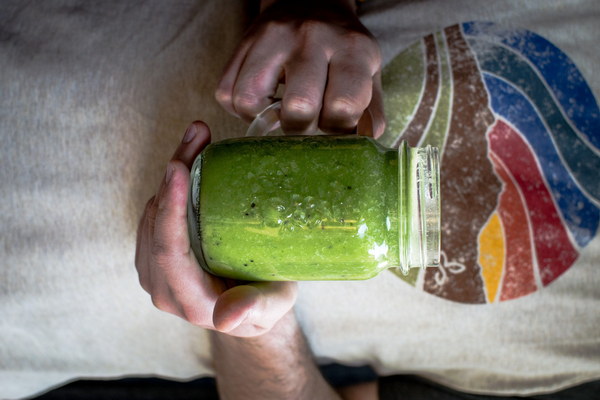Replenishing the Body After Kidney Disease A Comprehensive Guide to Nutritional Supplements
After kidney disease, it's essential to focus on a balanced diet that supports kidney health and aids in recovery. The right nutrients can make a significant difference in managing symptoms and improving overall well-being. This article delves into the best foods and supplements to consider for post-kidney disease replenishment.
Introduction
Kidney disease can be a challenging condition, affecting the body's ability to filter waste and maintain fluid balance. Recovery from kidney disease often requires a careful balance of diet and lifestyle changes. This guide will explore the key nutrients and foods that can help support kidney function and promote healing.
Protein: The Building Blocks of Recovery
Protein is crucial for tissue repair and muscle strength, which are vital during recovery. However, it's important to choose high-quality protein sources that are easy on the kidneys. Good options include:
- Lean meats: Chicken, turkey, and lean cuts of beef or pork.

- Fish: Tuna, salmon, and cod are excellent choices.
- Eggs: A complete protein source with all essential amino acids.
- Legumes: Beans, lentils, and chickpeas are good plant-based protein sources.
- Dairy: Low-fat milk, cheese, and yogurt can be included in moderation.
Fruits and Vegetables: Essential Nutrients
A diet rich in fruits and vegetables is essential for kidney health. These foods provide a variety of vitamins, minerals, and antioxidants that support overall health. Here are some fruits and vegetables to incorporate into your diet:
- Berries: Blueberries, strawberries, and raspberries are packed with antioxidants.
- Leafy greens: Spinach, kale, and collard greens are excellent sources of vitamins and minerals.
- Root vegetables: Carrots, beets, and sweet potatoes are rich in beta-carotene and fiber.
- Citrus fruits: Oranges, grapefruits, and lemons are high in vitamin C.
- Cruciferous vegetables: Broccoli, cauliflower, and Brussels sprouts are beneficial for kidney health.
Healthy Fats: The Good Ones Matter
Healthy fats are essential for nutrient absorption and overall health. Incorporate the following into your diet:
- Avocado: A great source of monounsaturated fats and fiber.
- Nuts and seeds: Almonds, walnuts, chia seeds, and flaxseeds are rich in omega-3 fatty acids.
- Olive oil: A staple in Mediterranean diets, it contains healthy monounsaturated fats.
- Fish oil: Supplements can be beneficial, especially if you're not getting enough omega-3s from food.
Hydration: Essential for Kidney Function
Proper hydration is crucial for kidney function. Drink plenty of fluids, but avoid high-sodium and high-potassium drinks, as they can strain the kidneys. Water, herbal teas, and infused water with cucumber or lemon are great choices.
Supplements: When Diet Alone Isn't Enough
In some cases, supplements may be necessary to fill nutritional gaps. Always consult with a healthcare provider before starting any supplement regimen. Here are a few that might be beneficial:
- Vitamin D: Often deficient in those with kidney disease, vitamin D supplements can support bone health and overall well-being.
- Magnesium: Magnesium supplements may help with muscle cramps and other symptoms associated with kidney disease.
- Omega-3 Fatty Acids: Fish oil supplements can provide a good source of omega-3s if dietary sources are limited.
- Potassium-Binding Agents: For those with high potassium levels, potassium-binding agents can help manage kidney function.
Conclusion
Recovery from kidney disease is a delicate process that requires careful attention to diet and nutrition. By focusing on high-quality protein, a variety of fruits and vegetables, healthy fats, and appropriate supplements, you can support your body's healing process. Always work with a healthcare provider to tailor a diet and supplement plan that's right for you. With the right approach, you can improve your kidney function and enhance your overall quality of life.









